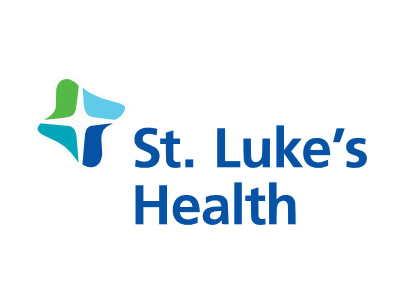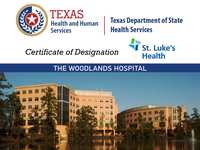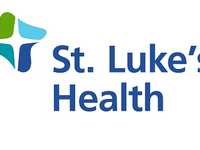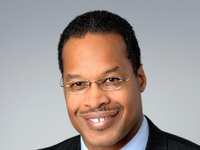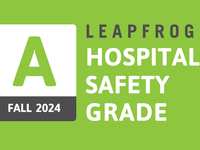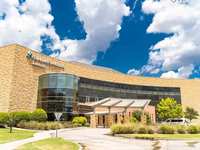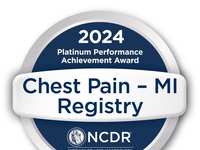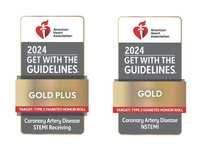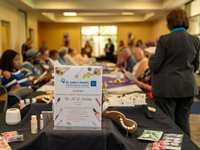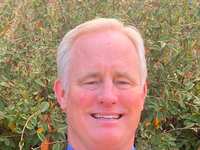- Sections :
- Crime & Public Safety
- Restaurants & Food
- Sports
- More
Spring man in his 50s couldn’t outrun family history of heart disease
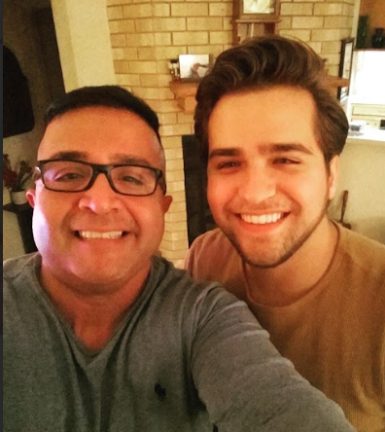
THE WOODLANDS, TX -- Ben Aguilar, 57, tried to outrun his family history of heart disease. He ran marathons and half-marathons. He didn’t smoke or drink.
“This just threw me for a loop,” he said.
For two days in May 2023, Aguilar went to work despite having chest pains. He did stop at an urgent care clinic where a medical provider told him to go straight to the hospital.
“As stubborn and hard-headed as it was, I looked at him, and I got mad because they didn’t want to see me,” Aguilar said. “They said, ‘go to the hospital.’”
Aguilar ignored the advice and went home. His son and father also encouraged him to get checked out.
On the third day, Aguilar finally broke down and made the 20-minute drive from his home in Spring to St. Luke’s Health–The Woodlands Hospital. The pain he was experiencing felt like a “two-ton elephant on my chest.”
“I couldn’t breathe. I couldn’t think,” he said.
Aguilar parked in the emergency room parking lot but in a spot farthest away from the entrance.
“There were so many spots closer, but I was sitting there going, ‘Why did I do that?’” he said.
Outside of his car, holding his chest, a nurse spotted Aguilar and sped up to reach him. Hearing his symptoms, she quickly whisked him inside, past the registration desk and straight back to an emergency bay.
The quickness of the team’s actions got Aguilar’s attention and he finally could acknowledge, “This is some serious stuff.”
The nurse stayed by Aguilar’s side, assuring him he was going to be OK.
Aguilar was soon in the cardiac catheterization lab where a specialist checked the internal workings of his heart. When he woke up, the cardiologist told Aguilar he was having a major heart attack and needed to be admitted for triple bypass surgery.
“The whole time that nurse, she never left my side. She held my hand. She kept going, ‘You're at the right spot. You're at the right place. You're going to make it,’” he said.
Later, Aguilar’s family and friends arrived, including his father, who had his own triple-bypass operation more than a decade ago.
Dr. Vivek Patel performed Aguilar’s 3½ hour bypass surgery. Each of Aguilar’s three arteries was 80% blocked, including the vital left anterior descending artery that supplies a significant portion of blood to the heart. The surgery was a success.
While Aguilar carried a little extra weight on his muscular frame, he didn’t have any bad habits, said Patel, Assistant Professor of Surgery in the Division of Cardiothoracic Surgery at Baylor College of Medicine.
“The prognosis in these patients is very good,” the doctor said. “It’s very important because he was doing everything right. It wasn’t that. It’s just that he had a strong family history of heart disease.”
Aguilar, who was 55 at the time, left the hospital after a week.
“We usually tell patients that they will recover approximately one week in the hospital and then continue outpatient cardiac rehab for 12 weeks. However, by six weeks, almost all patients are back to normal—working and driving. And then after six weeks, they can do whatever they need to,” Patel said.
Aguilar said he is trying to live stress-free, and while he’s not running like he used to, he regularly does a three-mile walk/run. He is also on medication to help protect his heart and slow plaque buildup.
Patel encourages people with a strong family history to see a cardiologist for a stress test 10 years sooner than the age when their family member had a heart attack or surgery.
Aguilar’s advice to anyone experiencing chest pain is to go straight to the hospital.
“Looking back, it could have ended. There are so many things I could miss seeing, miss doing, and I really appreciate life now,” he said. “I really wish I could tell everybody just to learn to love life and learn to love each other. This happens to a lot of people, but I feel very fortunate to tell the story.”

